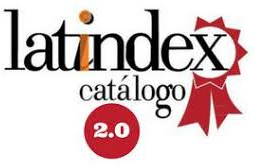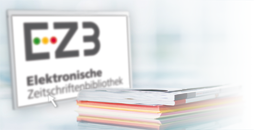El cuaderno azul, el perro de peluche y la flor de trencadís. Una reflexión sobre la cultura material, las emociones y la migración
Resumen
A partir de una revisita a dos investigaciones sobre la inmigración europea en la Argentina realizadas por la autora y publicadas en 2004 y 2010, este trabajo explora la interacción entre las emociones, la biografía socio-cultural de los objetos y las trayectorias vitales de los inmigrantes. Mientras que en aquellas ocasiones, los objetos ocuparon un lugar periférico, aquí “las cosas” se ubican en el foco de la reflexión sobre la relación entre la movilidad espacial, la cultural material y las emociones que se adscriben a y se inscriben en ellas.
Palabras clave
Referencias
Ahmed, Sara (2004). The Cultural Politics of Emotion. Nueva York, Routledge.
Ahmed, Sara (2010). The Promise of Happiness, Durham & Londres, Duke University Press.
Appadurai, Arjun, (Ed.) (1991 [1986]). La Vida Social de las Cosas. Perspectiva cultural de las mercancías. México D.F. Grijalbo.
Baily, Samuel y Ramella, Franco (Eds.) (1988). One Family Two Worlds: An Italian Family´s Correspondence across the Atlantic, 1901-1922. Nueva Jersey, Rutgers University Press.
Barnes, Diana (2018). Emotional debris in early modern letters. En
Downes, Stephanie, Holloway, Sally y Randles, Sarah (Eds.) Feeling things: objects and emotions through history (pp. 114-132). Oxford, Oxford University Press
Bjerg, María (2004). El Mundo de Dorothea. La Vida Cotidiana en un Pueblo de la Frontera de Buenos Aires en el siglo XIX. Buenos Aires. Imago Mundi.
Bjerg, María (2012). El Viaje de los Niños. Inmigración, Infancia y Memoria en la Argentina de la Segunda Posguerra, Buenos Aires, Edhasa.
Borges, Marcelo y Cancian Sonia (2016). Reconsidering the migrant letter: from the experience of migrants to the language of migrants. The History of the Family, Vol.21, N° 3, pp.281-290
Brown, Bill (2001). “Thing Theory”, Critical Inquiry, 28/1, 2011, p.1-22.
Cancian, Sonia (2010).Family, lovers and their letters. Italian Postwar Migration to Canada. Winnipeg, Manitoba University Press.
Ceva, Mariela (2005). La construcción de una memoria familiar en la inmigración biellesa, 1895-1960. Estudios Migratorios Latinoamericanos, Vol.19, No. 58, pp.461-482.
Da Orden, María (2004). Fotografía e identidad familiar en la migración masiva a la Argentina. Historia Social, No. 48, pp. 3-25.
Da Orden, María (2010), Una familia y un océano de por medio. La emigración gallega a la Argentina: una historia a través de la memoria epistolar. Barcelona, Anthropos.
Dixon, Thomas (2003). From Passions to Emotions: The Creation of a Secular Psychological Category. Cambridge, Cambridge University Press.
Downes, Stephanie, Holloway, Sally y Randles, Sarah, (Eds.) (2018). Feeling Things: Objects and Emotions through History, Op.Cit.
Edwards, Elizabeth (2005). Photographs and the Sound of History. Visual Anthropology, Vol. 21 No. 1, pp. 27–46.
Edwards, Elizabeth (2010). Photographs and history: emotion and materiality. En Sandra H. Dudley (Ed.) Museum Materialities: Objects, Engagements, Interpretations (pp.21-38). Londres y New York. Routledge.
Elliot, Bruce, Gerber David y Sinke, Suzanne (Eds.) (2006). Letters across Borders: The Epistolary Practices of International Migrants, New York, Palgrave Macmillan.
Frevert, Ute (2011). Emotions in History – Lost and Found. Budapest, Central European University Press.
Franzina, Emilio (1979). Merica, Merica! Emigrazione e colonizzazione nelle lettere dei contadini veneti in America Latina (1876-1902), Milán, Feltrinelli.
Gell, Alfred (2016 [1998]). Arte y Agencia. Una Teorías Antropológica. Buenos Aires. SB.
Gosden, Cris y Marshall, Yvonne (1999). The Cultural Biography of Objects. World Archaeology, Vol. 31, No. 2, pp. 169-178.
Jordanova, Ludmila L. (2012). The Look of the Past. Visual and Material Evidence in Historical Practice. Cambridge y Nueva York, Cambridge University Press.
Labanyi, Jo. (2010). Doing Things: Emotion, Affect and Materiality. Journal of Spanish Cultural Studies, Vol. 1 N°3/4, pp. 2 2 3- 233.
Miller, Daniel (1987), Material Culture and Mass Consumption, Nueva York, Wiley-Blackwell.
Miller, Daniel (Ed.) (2005). Materiality, Durham NC, Duke University Press.
Miller, Daniel (2008). The Comfort of Things. Cambridge: Polity Press.
Moran, Anna y O’Brien Sorcha (Eds.) (2018). Love Objects: Emotion, Design and Material Culture. Londres, Bloomsbury.
Plamper, Jan (2015). The History of Emotions: An Introduction. Oxford, Oxford University Press.
Reddy, William (2001). The Navigation of Feeling: A Framework for the History of Emotions. Cambridge, Cambridge University Press.
Scheer, Monique (2012). Are Emotions a kind of practice (and is that what makes them have a history?) A Bourdieuian approach to understanding emotion”. Theory and History, Vol. 51 No. 2, pp.193-220.
Stearns, Peter N. y Stearns Caroline Z. (1985). Emotionology: Clarifying the History of Emotions and Emotional Standards. American Historical Review, Vol. 90 N. 4, pp.813-836.
Styles, John (2015). Objects of Emotion: The London Foundling Hospital Tokens, 1741–1760. En Gerritsen, Anne y Riello Giorgio (Eds.). Writing Material Culture History (pp. 165–172). Londres, Bloomsbury.
Svašek Maruška (Ed.) (2012). Moving Subjects, Moving Objects. Transnationalism, Cultural Production and Emotions. Oxford y Nueva York, Berghahn Books.
Turkle, Sherry (2007). Evocative Objects. Things we think with. Cambridge. The MIT Press.
Zaragoza Bernal, Juan Manuel (2015). Ampliar el marco. Hacia una historia material de las emociones. Vínculos de Historia, No. 4, pp. 28-40.
Enlaces refback
- No hay ningún enlace refback.
Copyright (c) 2019 Pasado Abierto

Este obra está bajo una licencia de Creative Commons Reconocimiento-NoComercial 4.0 Internacional.
.jpg) |
ISSN 2451-6961 (online) Open Past is licensed under a Creative Commons Attribution-NonCommercial 4.0 International License. |
| Included in: | |
| ROAD https://portal.issn.org/resource/ISSN/2451-6961 |
| LatinREV https://latinrev.flacso.org.ar/mapa |
| Latindex Directory https://www.latindex.org/latindex/ficha?folio=26011 |
| Google Scholar Link |
| BASE (Bielefeld Academic Search Engine) Link |
 | Latin American (Association of Academic Journals of Humanities and Social Sciences) Link |
 | MIAR (Information Matrix for Journal Analysis) Link |
 | SUNCAT Link |
 | WorldDCat Link |
 | Ibero-American News Link |
| CZ3 Electronische Zeitschriftenbibliothek Link |
| Open Science Directory Link |
| EC3 metrics Link |
| JournalsTOCs Link |
| Malena Link |
| Evaluated by: | |
 | Latindex Catalog 2.0 Link |
 | Basic Core of Argentine Scientific Journals Link |
 | DOAJ (Directory of Open Access Journals) Link |
 | ERIHPLUS (European Reference Index for the Humanities and Social Sciences) Link |
 | REDIB (Ibero-American Network of Innovation and Scientific Knowledge) Link |
 | CIRC (Integrated Classification of Scientific Journals) Link |
| Open Past uses the persistent identifier: | |
|














.png)